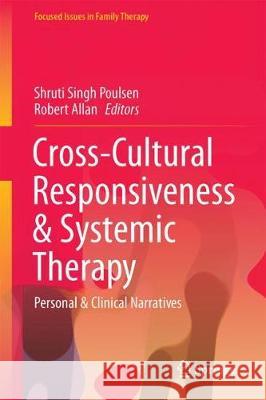Cross-Cultural Responsiveness & Systemic Therapy: Personal & Clinical Narratives » książka
topmenu
Cross-Cultural Responsiveness & Systemic Therapy: Personal & Clinical Narratives
ISBN-13: 9783319713946 / Angielski / Twarda / 2018 / 161 str.
Kategorie:
Kategorie BISAC:
Wydawca:
Springer
Seria wydawnicza:
Język:
Angielski
ISBN-13:
9783319713946
Rok wydania:
2018
Wydanie:
2018
Numer serii:
000808685
Ilość stron:
161
Waga:
0.50 kg
Wymiary:
23.5 x 15.5
Oprawa:
Twarda
Wolumenów:
01











